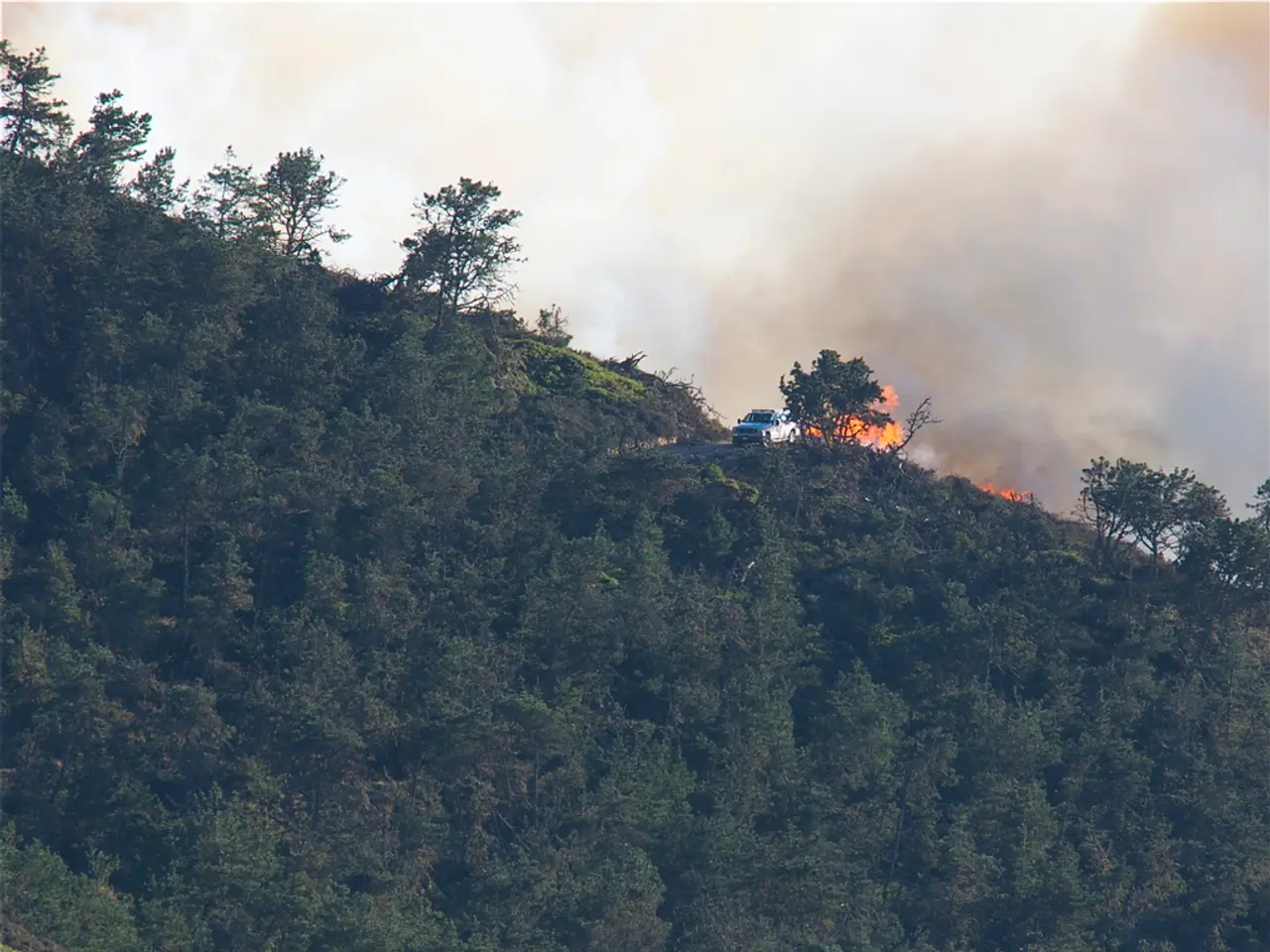Continuous heatwaves persist across the nation, causing another round of sweltering temperatures.
As temperatures soar across the Federal Republic of Germany, reaching a scorching 46°C in some areas, the country is bracing itself for an extended period of intense heat. The heatwave, referred to as a "heat dome" by experts, is causing extreme heat conditions, particularly in the south and west.
The heat dome is a high-pressure area that can stagnate hot air for several weeks, leading to the persistence of summery hot conditions. Long-term forecasts show that this heatwave will continue, with temperatures expected to remain high even towards the weekend, reaching up to 34°C.
Yesterday, partial values of up to 40°C were recorded in the shade, and in the sun, the felt temperature reached even higher. In cities, extreme heating occurs due to asphalt, making night-time cooling minimal.
To stay safe during this heatwave, it is crucial to follow some general safety measures. Staying hydrated is key, so drink plenty of water throughout the day to avoid dehydration. Limit physical activity, especially during the hottest part of the day (usually between 11 am and 3 pm). Spend time in air-conditioned spaces or cool, shaded areas, and protect your skin from the sun's harmful rays using sunscreen.
Certain groups are more vulnerable to heat-related illnesses. The elderly and young children should be particularly careful, as should those with cardiovascular diseases or other heat-sensitive conditions. Take extra precautions to ensure they stay cool and hydrated.
In addition to these measures, use protective gear such as hats, sunglasses, and light, loose clothing to protect against the sun. Take cool showers or baths to lower body temperature quickly. Never leave anyone in a parked car, as temperatures inside can rise rapidly.
Community and institutional measures can also help mitigate the risks associated with extreme heat. Ensure access to free drinking water for all, especially in schools and public spaces. Modernize buildings with green roofs and shade structures to reduce heat impact. Implement heat protection policies in schools and hospitals, including first aid training for heat-related emergencies.
Be aware that heatwaves can strain power systems, potentially leading to disruptions. Conserve energy where possible.
This heatwave is triggering fatal consequences, particularly for older people, babies, and young children. Weather experts are sounding the alarm, assessing the situation as partly life-threatening.
This day is considered the hottest day in our country, with tropical nights being a risk in cities, where temperatures do not fall below 20°C. Stay safe, stay cool, and stay hydrated during this challenging time.
- Given the current heatwave, it's essential to understand that young children are especially vulnerable to climate-change related extreme weather conditions such as this heatwave.
- The persistent heat can have devastating effects, particularly on the elderly and individuals with heat-sensitive health conditions like cardiovascular diseases, making it crucial to prioritize their safety measures during weather-forecasted hot spells.
- To minimize the impacts of this heat dome and its intense heat, environmental-science strategies like modernizing buildings with green roofs and shade structures, or implementing heat protection policies in schools and hospitals, can help provide relief and ensure the safety of our communities.







